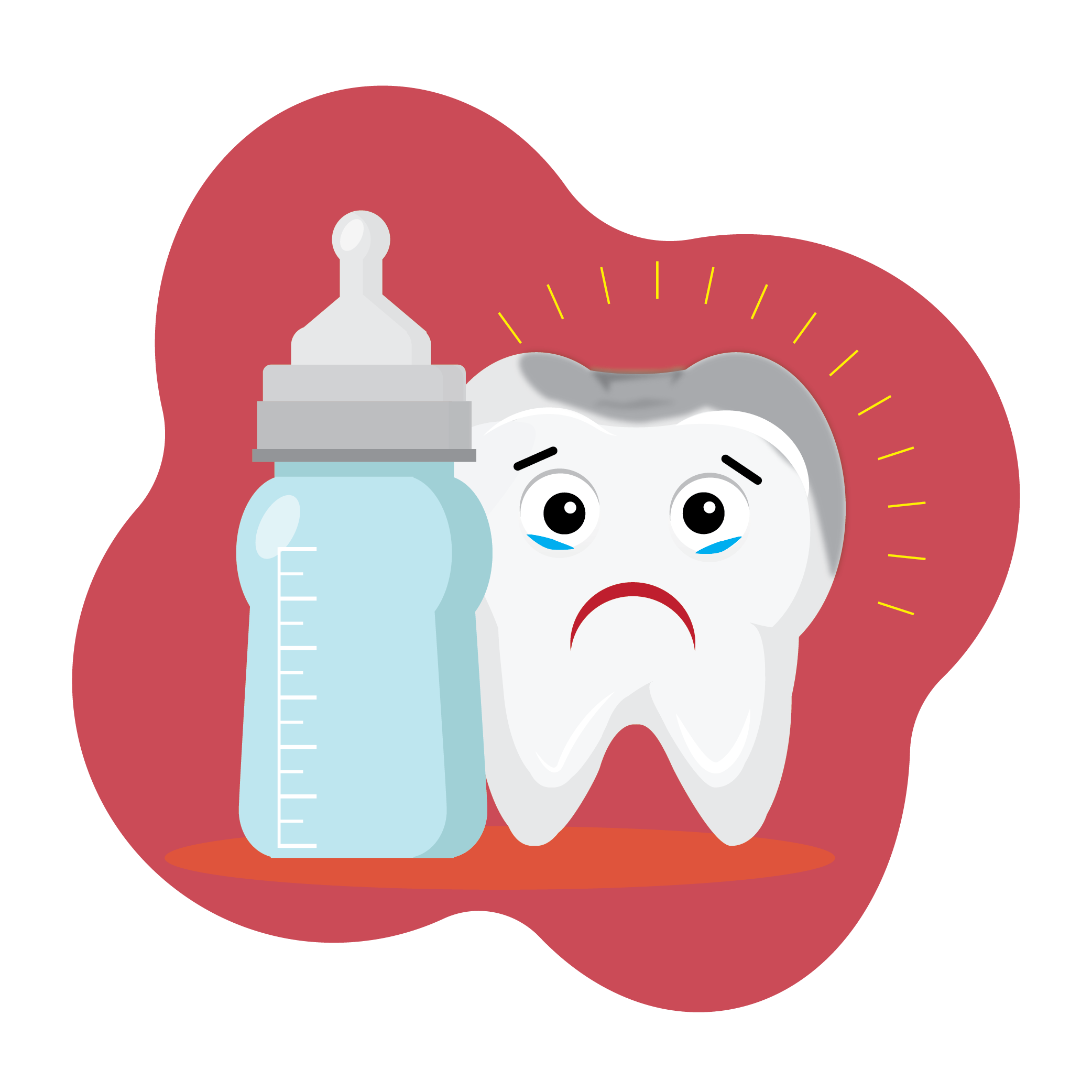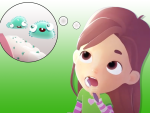Parents of young children usually have a lot on their minds when it comes to keeping their child healthy, so the very simple habit of brushing and flossing can be easy to overlook. However, just like permanent teeth, baby (primary) teeth can develop cavities.
Childhood cavities (caries) are concerning because baby teeth have the important job of holding the space for permanent teeth. They also help children when developing their abilities to talk, eat and smile. For all of these reasons, it’s important to start caring for your child’s teeth from the start and help them keep up good habits to protect their smile.
Caring for your child’s baby teeth should begin as soon as they start to come in because they will be at risk of cavities. Just like our adult teeth, tooth decay can start when teeth are in contact with sugary food and drinks.

One type of tooth decay that sometimes affects toddlers is Nursing Bottle Syndrome, also sometimes called Baby Bottle Tooth Decay. This type of decay comes from baby teeth being in extended contact with infant formula, milk or juice. When these liquids remain in the mouth for a long time, teeth decay can start quickly. Baby Bottle Tooth Decay is usually seen on the top front teeth, but it can happen anywhere in the mouth. The name of this decay stems from one of the common causes; a child falling asleep with a bottle in their mouth. The liquid pools against the upper teeth as the child is sleeping and causes decay. Once your child has teeth, it is important to avoid nursing children to sleep or putting anything other than water in a bottle at bedtime.
Tips to help prevent Early Childhood Caries (Cavities):
- Never put sugary drinks like juice or soda in a child’s bottle. It should be used only for formula, milk or water.
- Don't put the child to bed with a bottle or use a bottle to calm a fussy baby.
- Don't share silverware with your child to avoid exposing them to your germs and/or any cavity causing bacteria. The bacteria that cause dental cavities can be transmitted from your saliva to your child.
- Don’t dip a pacifier in sugar or honey before giving it to your child, and don't use your mouth to “clean off” a pacifier or anything else that will go in your child’s mouth.
- After feeding your baby, clean their gums with a damp washcloth.
- Once your child's teeth start to come in, begin brushing them with a smear (the size of a grain of rice) of toothpaste.
- Arrange your child’s first dental visit at the age of one or with the eruption of the first tooth.
Reminder: a balanced diet and fluoride, as recommended by your dentist, are key elements to a healthy smile for life!
This information in this post is for general educational purposes only and does not warrant or represent any information as related to health as specifically appropriate for you. It is not intended to be medical advice or replace the relationship that you have with your health care providers. You should always seek medical advice on any diagnosis or treatment from a qualified health care provider. The information is provided “as is” without any representations or warranties, express or implied.







